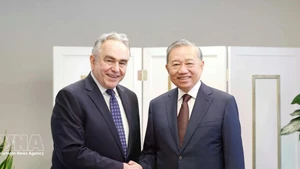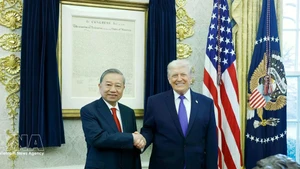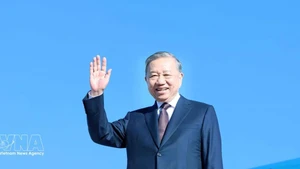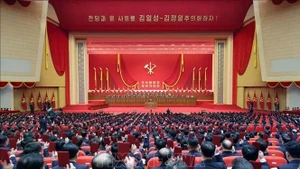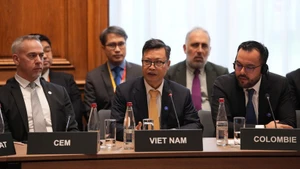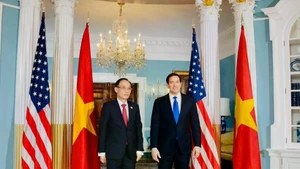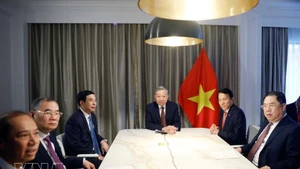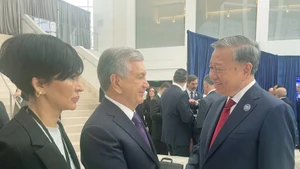During the talks, PM Chinh suggested that, on the basis of the positive cooperation results attained so far, DFC continue to support Vietnam in areas such as green transition, circular economy, renewable energy, climate change response, digital transformation, and addressing war aftermaths – including the consequences of Agent Orange and the search for the remains of martyrs, as well as promoting development in the new period.
The Vietnamese Government leader also proposed promoting cooperation in sustainable development of the Mekong River against the backdrops of rising sea level, so as to improve the material and spiritual life of people in the region.
Along with existing mechanisms, the PM hoped the two sides will study and implement new cooperation mechanisms with countries in the region, including financial incentives in infrastructure development.
Vietnam is a developing country that is still having to deal with the lasting consequences of the war, and it would benefit from DFC’s provisions of loans with preferential interest rates and flexible procedures – including financial incentives for small- and medium-sized enterprises, PM Chinh said.
He said the two sides should pick key projects with ‘spillover effect’ such as regional connectivity projects to help achieve the highest efficiency of the capital used.
Appreciating the potential and prospects of economic cooperation with Vietnam, the CEO of DFC said that many cooperation projects between the two sides have been carried out very effectively and in the coming time, DFC looks forward to promoting cooperation in the fields of climate change response, renewable energy, development of the Mekong River region, and inclusive development finance.
On the occasion, PM Chinh witnessed the handover of DFC's grant worth 70 million USD to Fulbright University in Vietnam.
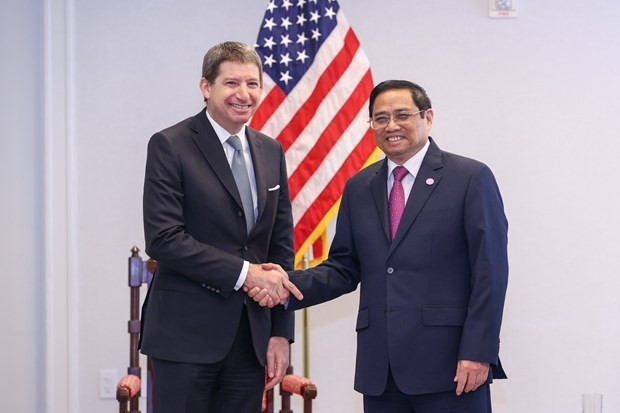
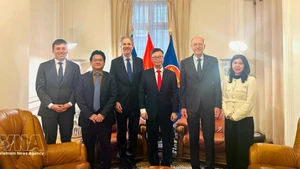
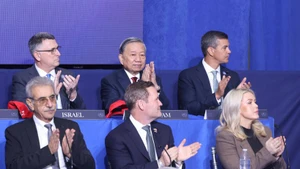
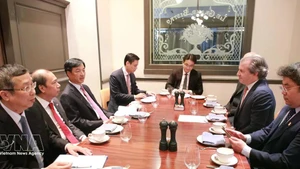
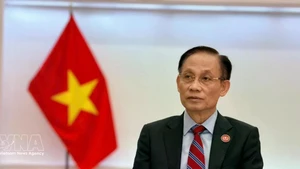
![[In pictures] Party General Secretary To Lam meets US President Donald Trump](https://en-cdn.nhandan.vn/images/dcd63867a0eed4c7753eb4bfb346593abc1ce710dfab8ad1b9aebd75ea6bf930b2ea13e4664779d689ba40aadd80f76d5d05d1208720fd7b0d811ace3a3297321c78cf738400e136e3f2d8790b24d43646e46edbe19517144a88f6ffb0d528f153574a7109328cc0949e4a4c16433c2ff751541639eefe4490518227264cbf8e/vna-potal-tong-bi-thu-to-lam-gap-tong-thong-hoa-ky-donald-trump-8599945.jpg.webp)
